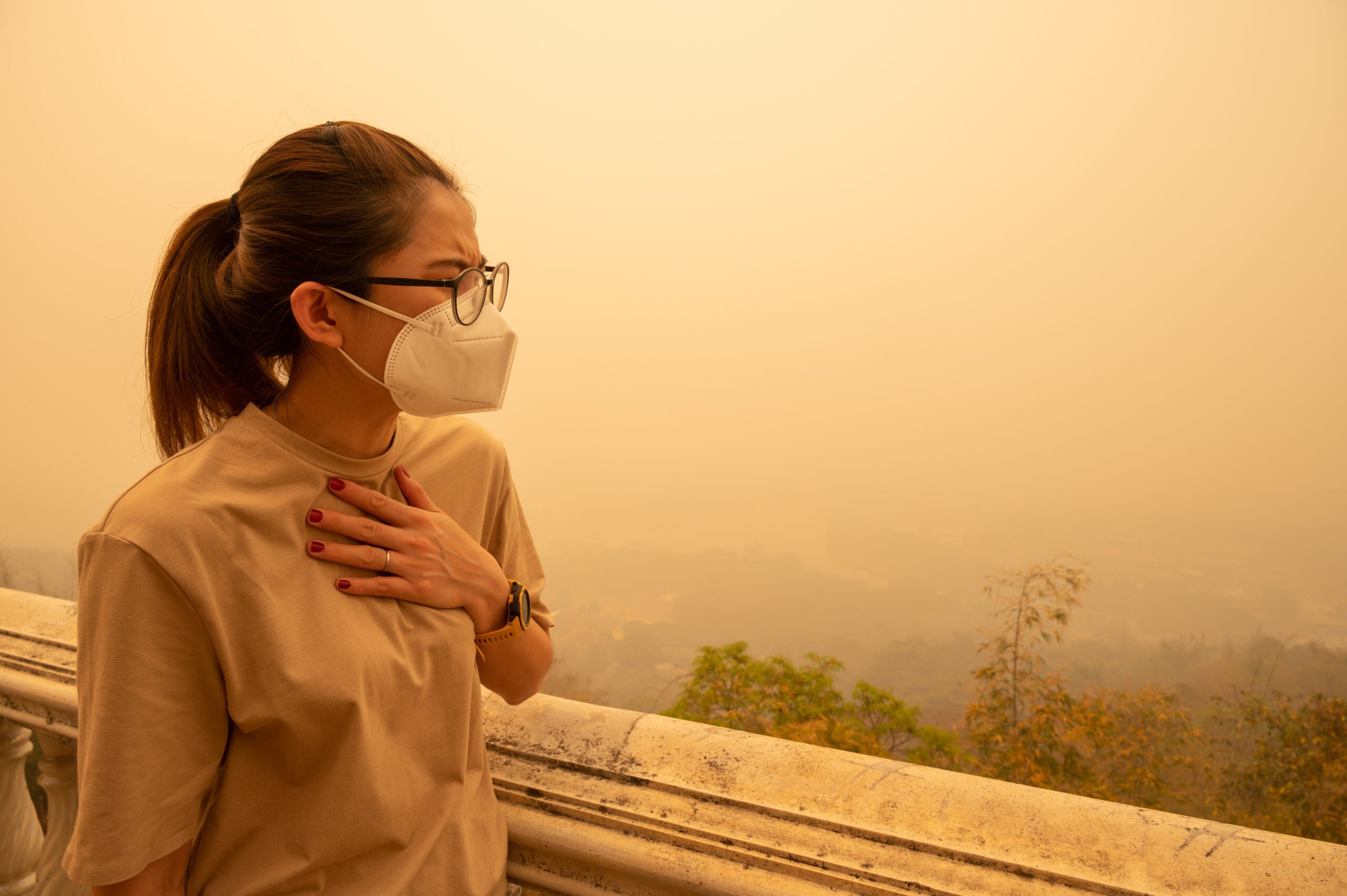Wildfires are deadlier and costlier due to climate change

Climate change contributes to hundreds to thousands of deaths every year and $11 billion annually in economic burden from wildfire smoke in North America
A study published today in Nature Communications Earth & Environment reveals the significant toll that climate change has taken on human health and the economy due to increased wildfire smoke exposure in the United States. The research shows that climate change has led to approximately 15,000 deaths over 15 years and a cumulative economic burden of $160 billion, due to exposure to fine particulate matter from wildfire smoke (wildfire-PM2.5).
Researchers looked at how much land wildfires burned from 2006-2020 and compared it to how much would have burned if climate change wasn’t happening. It found that climate change contributed to more burn area for wildfires to occur, resulting in more wildfire smoke pollution (called PM2.5) that can damage people’s health. The study is the first to quantify the link between climate change and the health and economic impacts of wildfire smoke at the state and county level, using a novel attribution framework to compare wildfire smoke levels with what they might have been if climate change hadn’t happened. Researchers then estimated the additional deaths due to wildfire smoke using a health impact function.
Our study shows that mitigating climate change would have huge benefits for reducing deaths and economic burdens from wildfire smoke, especially in the western U.S. where climate change accounts for up to 60% of wildfire PM2.5.
Nick Nassikas, senior author and Harvard Chan C-CHANGE core faculty member
Wildfire-PM2.5, a harmful pollutant produced during wildfires, is known to significantly worsen air quality and increase the risk of respiratory and cardiovascular diseases. In recent years, nearly half of the annual average PM2.5 in the U.S. has come from wildfires, reversing air quality improvements in several regions.
The research was conducted by a team of scientists from Oregon State University, University of California, Merced, Woodwell Climate Research Center, U.S. Environmental Protection Agency, and Beth Israel Deaconess Medical Center.
Key takeaways:
- Over the 15-year period studied (2006-2020), climate change contributed to around 15,000 deaths due to wildfire-PM2.5 exposure, with an annual range of 130 to 5,100 deaths.
- The cumulative economic burden from these deaths was approximately $160 billion.
- The year 2020 saw the highest number of climate-change-related wildfire-PM2.5 deaths, contributing 34% of the total fatalities for the entire period, resulting in an economic cost of $58 billion.
- The top 10 states with the highest annual mortality rates from climate change-related wildfire-PM2.5 were: Oregon, Montana, Idaho, Washington, California, Nevada, Wyoming, Colorado, Louisiana, and Arkansas
- The ten most impacted counties—located in California (4 of 10 counties), Idaho (1), Oregon (4), and Montana (1)—had climate change-caused wildfire-PM2.5 excess mortality rates ranging from 9.8 to 17.1 per 100,000 people. For comparison, the second most leading cause of mortality in the U.S. is cancer with mortality rates of 17.5 (2021) and 18.5 (2022) per 100,000 U.S. standard population.
Implications for Policy and Public Health
In the absence of climate change, there would have likely been 10% fewer deaths from wildfire-PM2.5 nationally from 2006-2020, with even greater reductions of 30-50% in some western states and counties, and billions of dollars saved from avoided mortality.
The findings emphasize the urgent need for integrated climate and health policies that address the increasing risks associated with climate-induced wildfires. As the climate continues to warm, the frequency and intensity of wildfires are projected to increase, worsening air quality and exposing more people to harmful wildfire smoke. This study underscores the importance of both mitigating climate change and developing adaptive strategies for public health and land management to reduce the impacts of wildfire smoke.
The study also calls for improved monitoring and forecasting of wildfire smoke events, along with better communication to vulnerable populations. The researchers suggest that investing in policies that limit fossil fuel emissions and enhance wildfire management practices can help mitigate future health risks and economic costs.
Read the Associated Press article: Smoke from climate-fueled wildfires contributed to thousands of US deaths over 15 years, study says
Read The Hill article: Wildfires are getting deadlier and costlier thanks to climate change: Study
Read the San Francisco Chronicle article: This California county has the highest death rate for climate change-driven wildfire smoke


